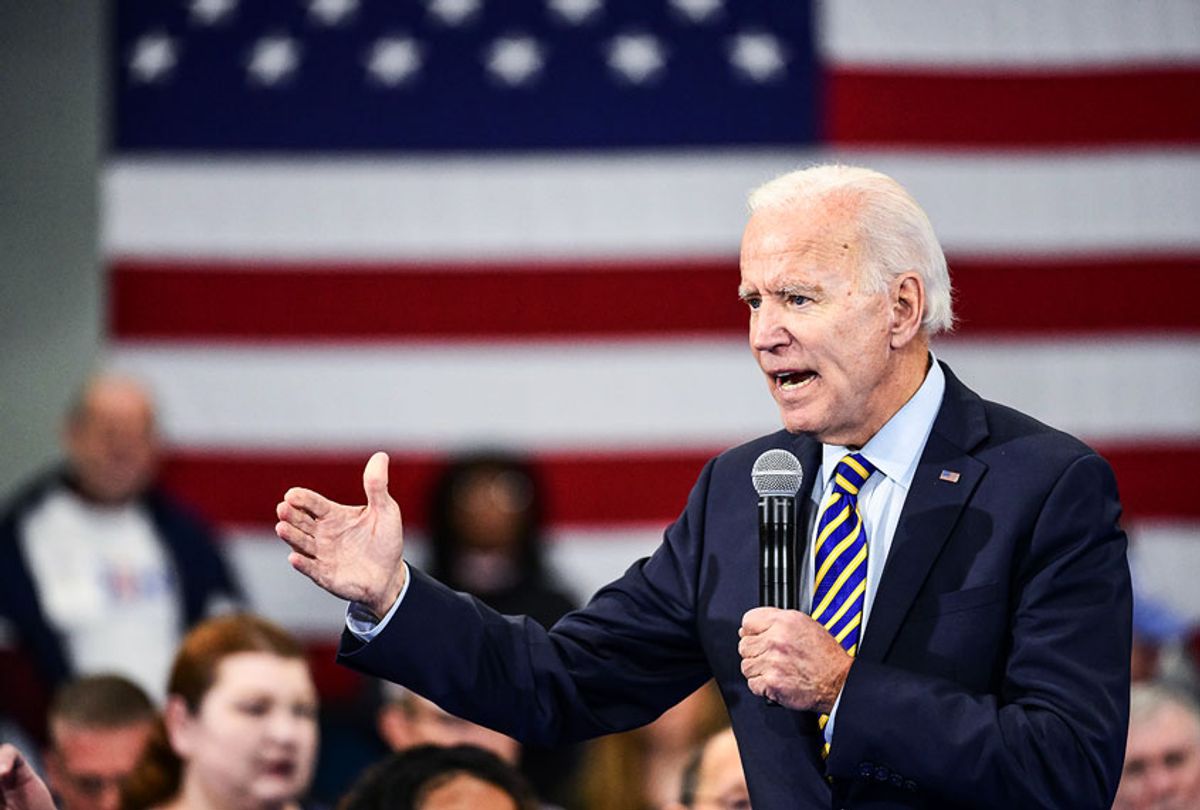Former Vice President Joe Biden emerged victorious in the Democratic primary in Texas, where results continue to trickle in after voters braved hours-long lines to vote late into the night.
Biden is projected to win the Lone Star state, the second-largest contest on Super Tuesday, according to The Associated Press. Biden leads Vermont Sen. Bernie Sanders by a margin of 3.6 points with 92% of precincts reporting. While it remains to be seen how the state's 228 delegates will be allocated, the count is expected to be close to evenly split.
Biden won nine of the 14 states that voted Tuesday, but Sanders was able to mitigate some of the damage with four wins, including a victory in delegate-rich California.
Voting in Texas stretched late into the night after polls officially closed, with many voters facing lines longer than two hours. The lines were particularly long in Harris County, which includes Houston. The final voter at Houston's Texas State University waited in line for nearly seven hours to vote.
A number of factors contributed to the long wait times. The Texas Civil Rights Project reported that polling locations in Dallas and Bexar Counties did not open on time or were "open sporadically." Harris County was impacted by a lack of voting machines. Voters were wrongly directed to voting locations that were already overwhelmed with long lines. The long lines disproportionately affected voters of color, the group said.
"Once again, black and brown voters in Harris County are facing unacceptable wait times in polling locations in their communities. Infuriatingly, we know that some voters have already given up and gone home. Even worse, we know that this is not the first time voters have faced this issue," Mimi Marziani, president of the Texas Civil Rights Project, said. "In fact, a pattern of long lines in communities of color has been a predictable trend in election after election in Harris County."
Though the state appears to have seen nearly double the voter turnout of 2016, the election was preceded by years of polling site closures that disproportionately impacted locations with large black and Latino populations. The state closed 750 polling sites since the Supreme Court gutted the Voting Rights Act in 2013, allowing states with a history of voter suppression to make electoral changes without authorization from the federal government.
The 50 counties that saw the largest increase in black and Latino population — including Travis, Dallas and Bexar Counties — gained 2.5 million new residents but lost 542 polling sites over that time frame. The 50 counties with the lowest black and Latin population growth lost about 13,000 residents but had just 34 closures, according to an analysis by The Guardian.
Many of the polling sites closed as a result of a shift to "voting centers," which allow voters to cast their ballot in any such location rather than go to an assigned polling place.
"While generally intended to enhance access to voting locations, this model often leads to massive reductions in polling places," the report said.
"It is an outrage that it is this hard to cast a vote in this country. It's wrong, and it should not take that much heroism and that much sacrifice to do your civic duty," MSNBC's Rachel Maddow said during the network's Super Tuesday coverage. "I know it's not only Texas. But in Texas, specifically, over successive electoral cycles over the past 10 years, the Republican-led government has made it harder, and harder and harder to vote. Not only in terms of the kind of documentation you have to show when you get there, but also they have been closing precincts. They have been closing voting places. Systematically. Particularly, in places that have high minority, young people, and poor people turnout. And so some of this is deliberate."
Journalist Ari Berman, whose book "Give Us The Ballot" detailed systemic attacks on voting rights, called the hours-long lines a form of "voter suppression."
"Four hour lines in Democratic & minority communities in Texas [are] a preview of voter suppression GOP planning for November," Berman tweeted. "Dems need to keep eyes on prize and develop strategy for combatting this, no matter who the nominee is."



Shares